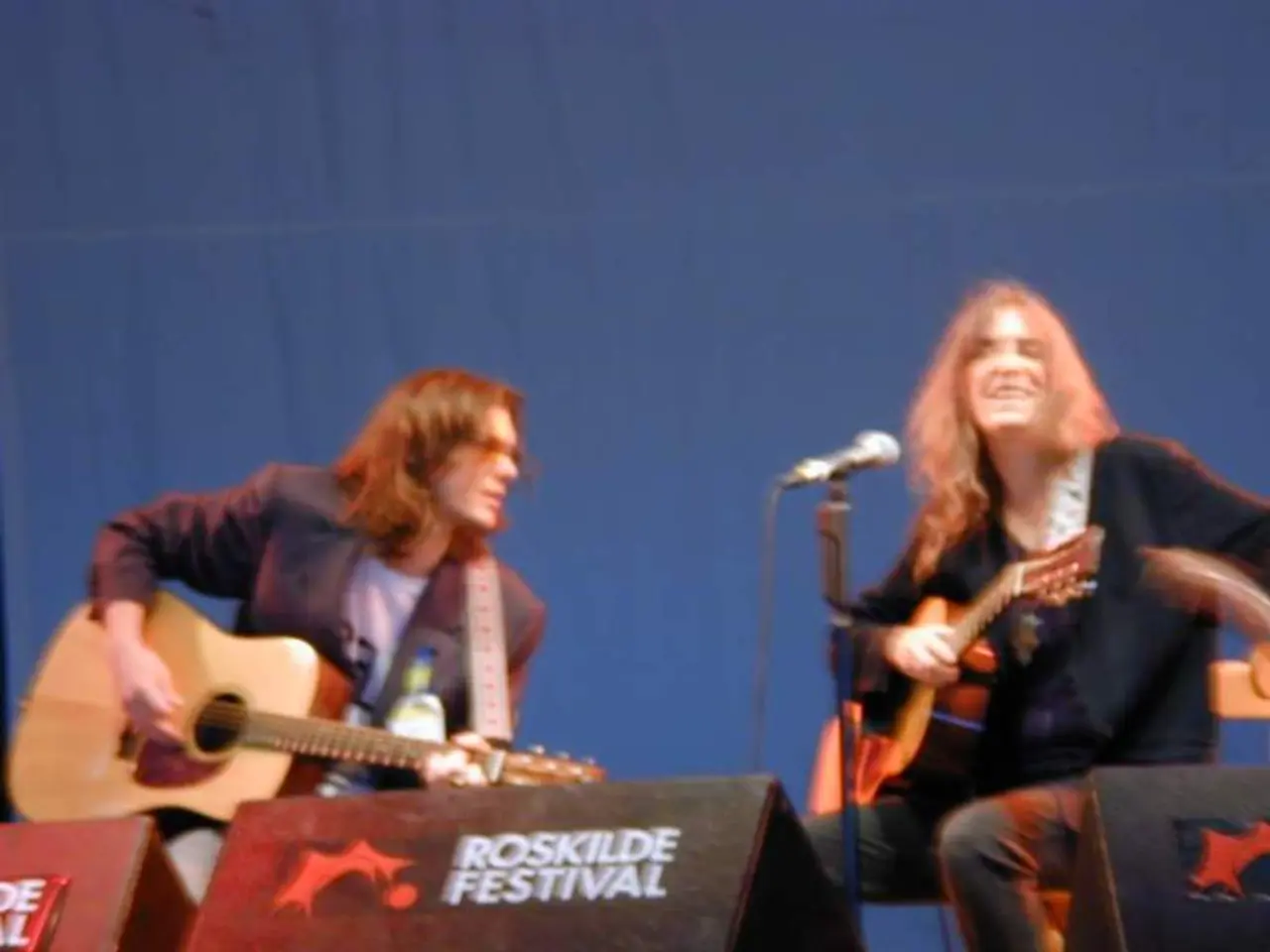Festival financing in a French town gets rescinded due to the booking of Northern Irish band Kneecap.
## Controversy Surrounding Kneecap's Performance at Rock-en-Seine
The upcoming Rock-en-Seine music festival in Saint-Cloud, a suburb of Paris, has been embroiled in controversy due to the inclusion of the Belfast-based Irish rap trio, Kneecap. The band, known for their politically charged lyrics and performances in both Irish and English, has sparked debate and raised concerns about artistic expression, political activism, and government funding.
### Origins of the Controversy
The primary sources of the controversy surrounding Kneecap can be traced back to their pro-Palestine messaging, allegations of association with proscribed groups, and a history of provocative performances that have led to safety concerns and cancellations at other festivals.
One of the band members, Liam Óg Ó hAnnaidh (Mo Chara), was charged in May with a terrorism offence for allegedly displaying a flag of Hezbollah, a group proscribed as a terrorist organization in Britain. However, the band has denied supporting Hamas or Hezbullah, stating that the flag was a symbol of resistance against Israeli occupation in Palestine.
Kneecap's inclusion at Rock-en-Seine has reignited questions about festival programming and security concerns, given their past cancellations from other events due to police warnings about potential safety risks. The town of Saint-Cloud, which does not finance political action, demands, or calls to violence, including calls to kill lawmakers of any nationality, withdrew a €40,000 subsidy from the festival, citing opposition to funding perceived political acts.
### Financial and Political Fallout
The withdrawal of municipal funding has sparked broader debates about the limits of artistic expression, political activism in cultural events, and the role of government in funding such initiatives. The episode has highlighted the delicate balance between artistic freedom and public funding in politically charged contexts.
### Festival Context and Broader Implications
Rock-en-Seine is one of France’s premier music festivals, attracting over 150,000 spectators annually. Its 2025 lineup includes major international acts, but Kneecap’s inclusion has become the main source of controversy, overshadowing much of the anticipated musical diversity. The situation reflects broader societal tensions regarding the intersection of music, politics, and cultural expression, especially in the context of the Israel-Palestine conflict and European sensitivities regarding terrorism-related prohibitions.
| Issue | Explanation | Source | |-------------------------------|----------------------------------------------------------------------------------------------|-----------------| | Pro-Palestine messages | Displayed at Kneecap gigs; cited by Saint-Cloud as a reason to withdraw funding | [1] | | Hezbollah flag allegation | Band member charged with terrorism offence; band denies supporting Hamas or Hezbollah | [1] | | Prior festival cancellations | Dropped from other events due to safety concerns from authorities | [2] | | €40,000 subsidy withdrawn | Saint-Cloud withdrew municipal support, citing opposition to funding perceived political acts | [1][3] |
As the controversy surrounding Kneecap at Rock-en-Seine continues to unfold, the debate about the role of art, politics, and government funding in cultural events remains a pressing issue. The case serves as a reminder of the complexities and sensitivities that can arise when artistic expression intersects with political messaging.
[1] Le Figaro, "Le Rock-en-Seine retire le financement municipal de l'événement en raison de Kneecap," (July 4, 2025). [2] The Guardian, "Kneecap: Belfast rap trio dropped from TRNSMT festival after police warnings," (July 10, 2022). [3] The Independent, "Saint-Cloud withdraws €40,000 subsidy for Rock-en-Seine festival over Kneecap's appearance," (July 4, 2025).
The controversy surrounding Kneecap's performance at Rock-en-Seine has sparked debates about the limits of artistic expression, particularly in relation to political activism. The general news about Kneecap's pro-Palestine messages and their alleged associations with proscribed groups have raised concerns about the role of government funding in such cultural events.








